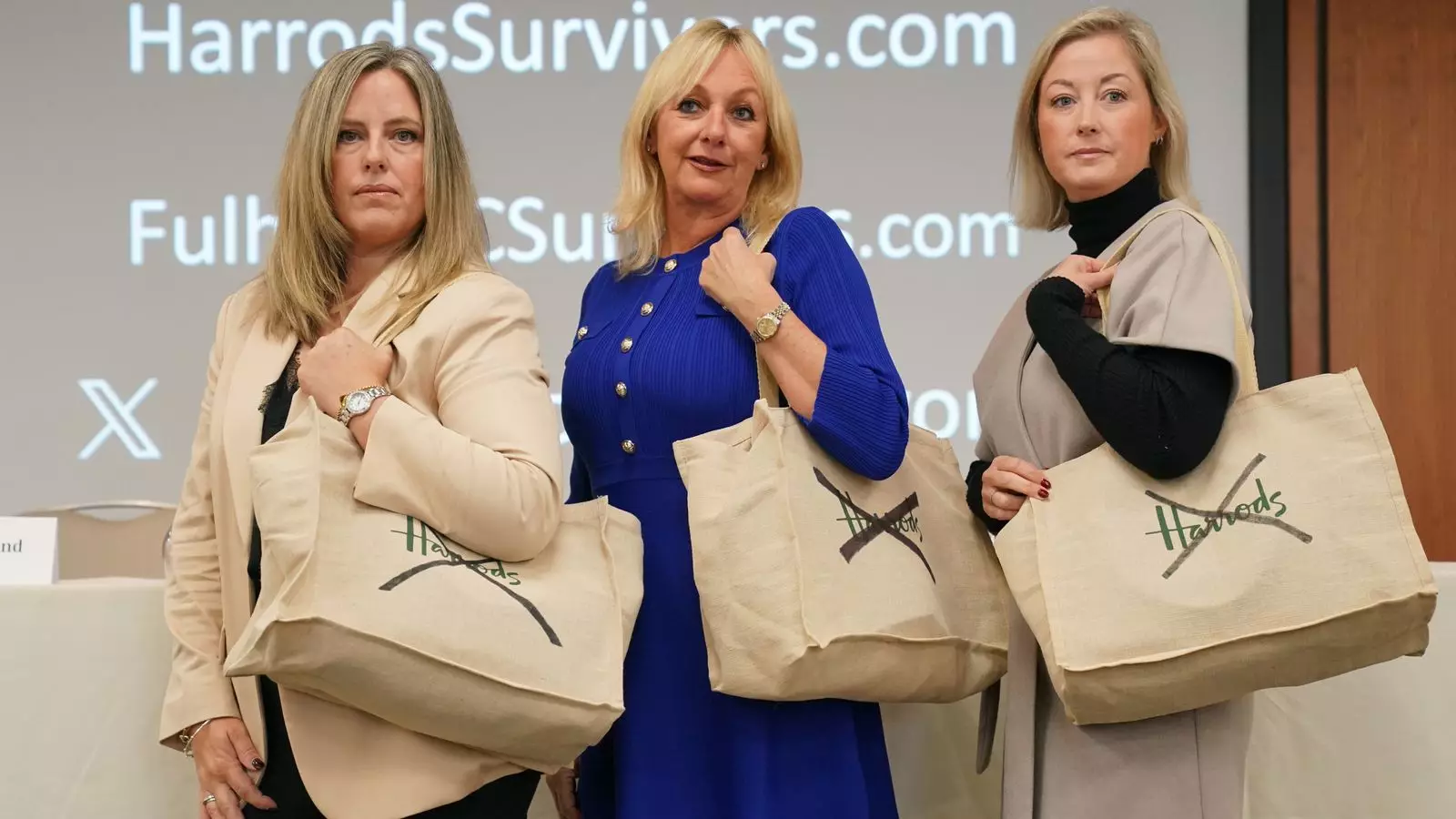The recent revelations surrounding Mohamed al Fayed, the former owner of Harrods and Fulham FC, have sent shockwaves through the UK and beyond, spotlighting a grim narrative of alleged abuse that spanned decades. The resurfacing of these allegations, largely due to the efforts of the Justice for Harrods Survivors group, highlights a troubling pattern of behavior that raises significant questions about accountability in positions of power and the systems that enable such abuses.
Following the broadcast of a revealing BBC documentary, reports concerning Fayed’s alleged predatory behavior began to surface in earnest. Over 400 people have come forward, claiming to be victims or witnesses to a series of heinous acts, including sexual assault and abuse of minors. The Justice for Harrods Survivors group has reported a staggering intake of testimonies from individuals connected to Harrods, Fulham FC, and other associated venues. This flood of allegations suggests a systematic and widespread issue rather than isolated incidents, highlighting an urgent need for comprehensive scrutiny.
Impact on Victims and Witnesses
The psychological toll on the individuals who have bravely shared their experiences cannot be overstated. As the legal representation for the victims steps forward, the gravity of the situation becomes increasingly apparent. Attorney Dean Armstrong KC remarked that the variety of claims and sources of inquiry paints a chilling picture of “industrial scale abuse.” These words are not merely legal jargon; they signify a potential culture of exploitation allowed to fester within organizations that could have, and should have, acted to protect their employees and patrons.
The allegations span various locations, each adding layers to the narrative of abuse. From lavish private estates to high-profile hotels, the circumstances under which these abuses allegedly occurred reinforce the notion that power dynamics are integral to understanding such heinous violations. The reported behaviors underline an alleged pattern whereby young women became vulnerable targets in Fayed’s orbit, often lured into compromising situations under the guise of professional relationships.
One of the striking elements of this unfolding story is the urgency expressed by legal representatives to initiate formal proceedings. The Justice for Harrods Survivors group has already begun the legal process on behalf of some survivors, signaling a pivotal moment in their quest for justice. Armstrong’s assertion that the first letter of claim has been dispatched to Harrods suggests that the repercussions of Fayed’s alleged actions will resonate far beyond the individual cases, potentially implicating larger institutions in their roles within these events.
Moreover, the geographic spread of claims—from the UK to countries such as the US, Canada, and Australia—illustrates the global implications of these allegations. This international reach makes it clear that the issue of corporate and celebrity abuse is not confined by borders, but reflects a pervasive problem that demands attention from global media, law enforcement, and society at large.
In the wake of these allegations, corporate entities like Harrods are put under scrutiny for their past affiliations with Fayed. The company’s response—asserting its current distinct identity from its pre-2010 operations—highlights a desire to distance itself from the actions of its former owner. However, such statements can feel insufficient in the face of disturbing allegations that have emerged. The public deserves transparency about how such environments can foster abuse and what the institutions are doing to ensure safety and accountability moving forward.
Moreover, the cultural conversation surrounding this issue is shifting. As victims step forward and societal norms evolve, there is a palpable demand for lasting change within corporate structures and cultures that have, historically, enabled such behavior. The courage of the survivors and witnesses in coming forward plays a crucial role in this transformation, pushing against the silence that often protects abusers and allowing for a more significant dialogue about power, consent, and responsibility in professional spaces.
As this narrative continues to evolve, it is imperative that society remains engaged and vigilant. The collective outcry for justice not only serves to support survivors but also seeks to dismantle the environments that have allowed such instances of abuse to occur. Each testimony and legal action taken is a step toward a future where all individuals are protected, respected, and heard—where power is not synonymous with predation. The fight for justice, initiated by those impacted by Fayed’s alleged actions, represents a broader movement to challenge and eradicate systemic abuse across all facets of society. The echoes of silence are beginning to fade, making way for a much-needed reckoning.


Leave a Reply